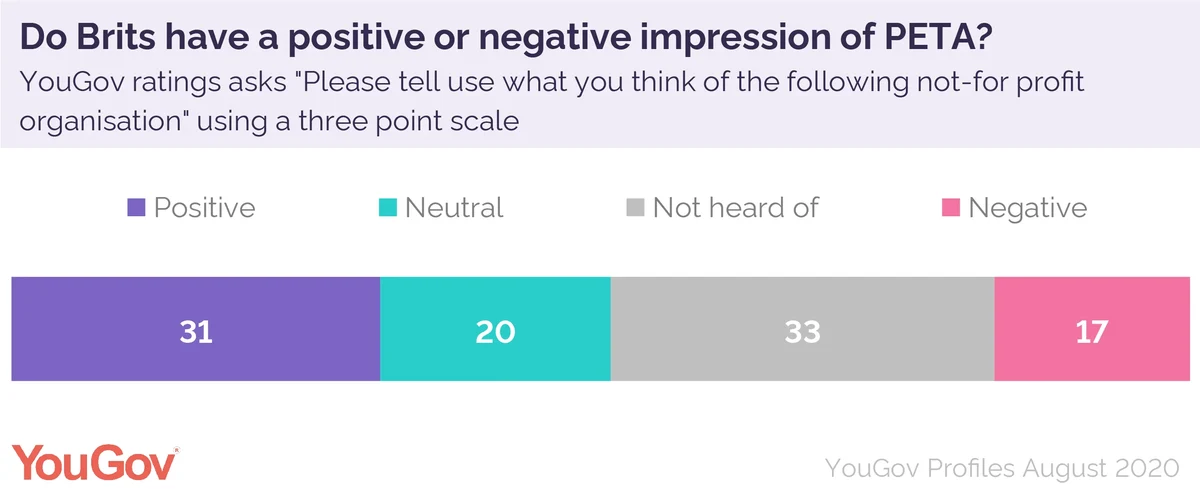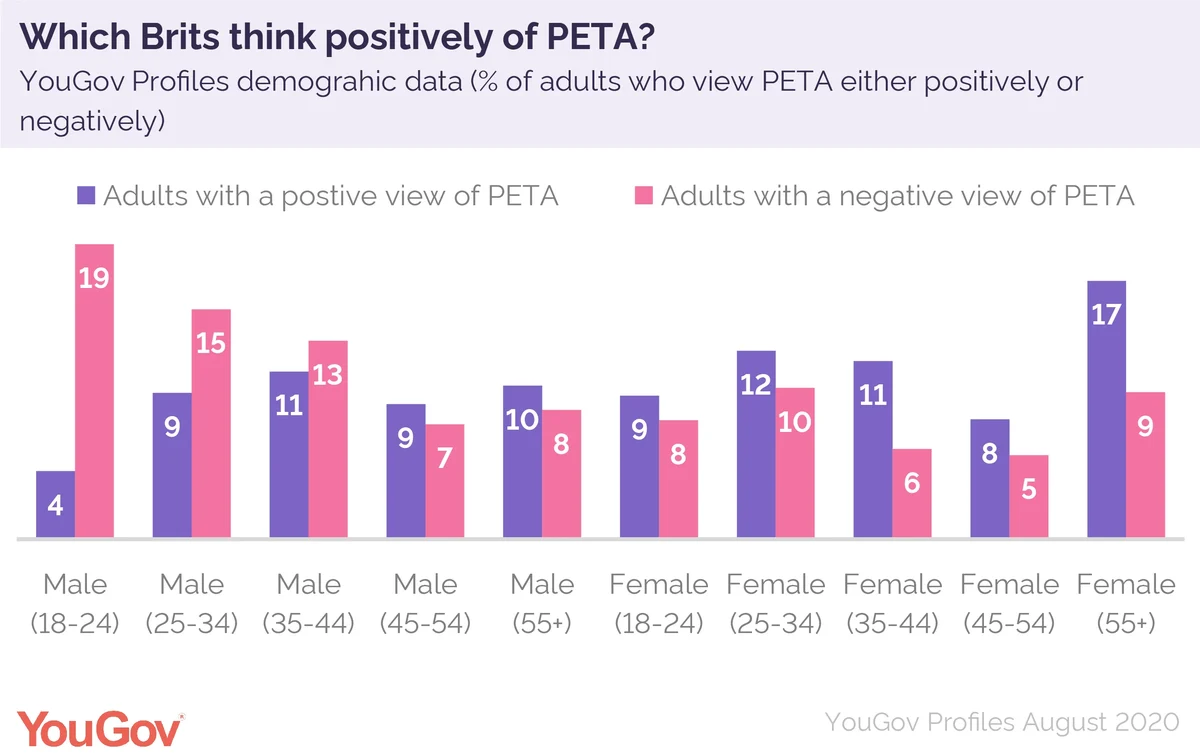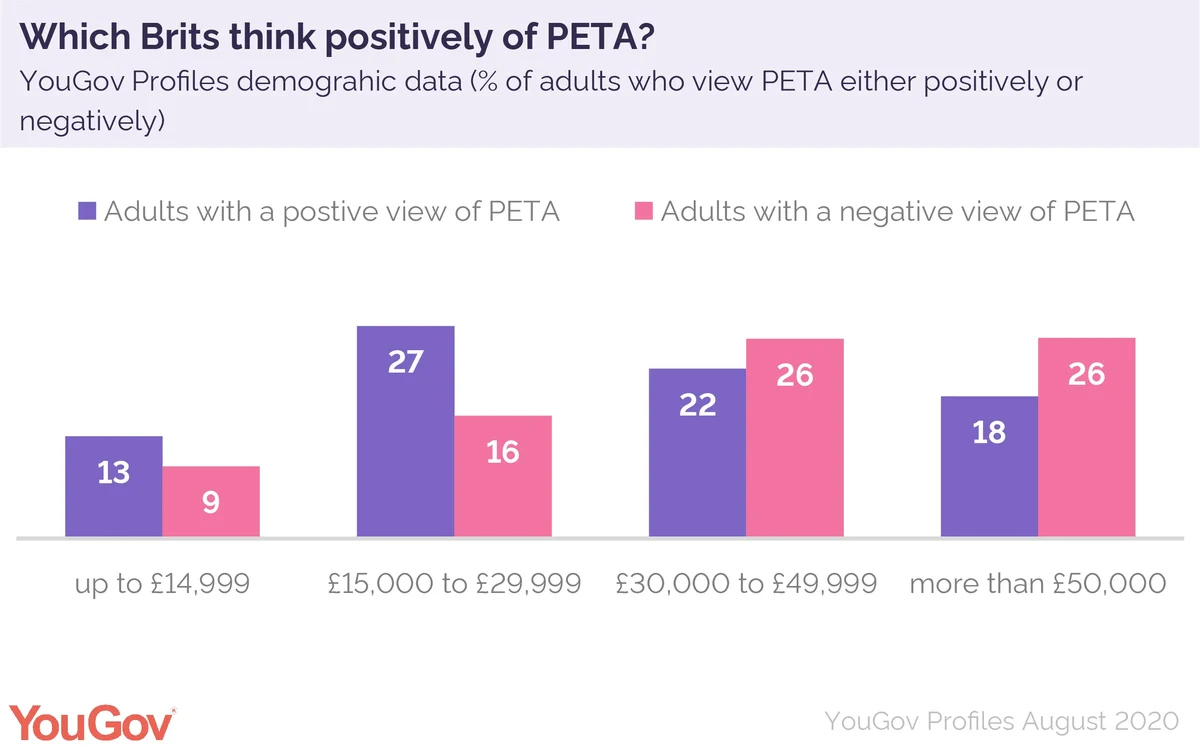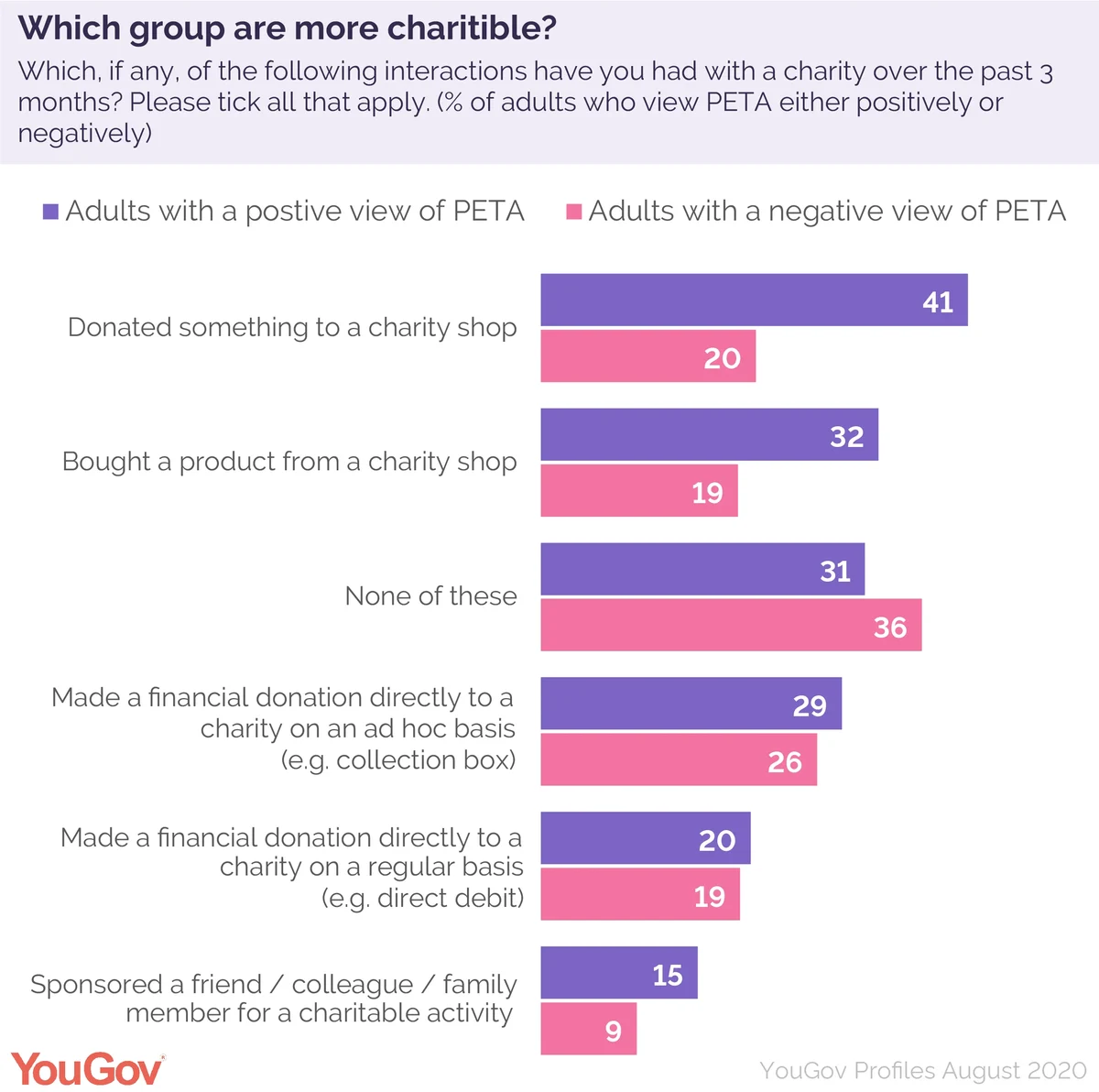Older Britons from lower income households are the most likely to think positively of the animal rights charity
PETA, or People for the Ethical Treatment of Animals, is a charity steeped in controversy due to its hard-line campaigning for animal rights around the world.
As such, the charity can be quite divisive - so how do Brits feel about it? Overall, Brits are more likely to have a positive impression of the charity (31%) than negative (17%). But a third (33%) have never heard of the organisation.
If we rebase the statistics for only Brits who have heard of PETA, 46% have a positive opinion, and 25% negative. YouGov Profiles shows that young males, specifically those aged between 18 and 24, are most likely to feel negatively about PETA, accounting for 19%.
YouGov Profiles also shows that older women are the most likely to feel positively, with 17% of those who feel positive about the group overall being women over the age of 55.
There is also a difference between households of different incomes. Homes with higher incomes are more likely to view PETA in a negative light compared to lower-income homes. For example, homes with incomes between £15,000 and £29,999 make up 27% of Brits who feel positively about the charity.
On the other hand, homes with incomes over £50,000 make up 26% of those who feel negatively about the charity. Around 1 in 6 (18%) of those with a negative view of PETA are from homes with incomes over £50,000, despite this income group making up 19% of households in the UK.
Those who view PETA in a positive light are also more likely to be charitable, YouGov Profiles shows. Two fifths (41%) of those with a positive view of PETA say they have donated to a charity shop in the last three months, compared to just 20% of those with a negative view.
Positive PETA viewers are also more likely to have purchased from a charity shop in the last three months (32%) when compared to those who have a negative view (19%).
Those with a negative view are more likely (36%) to say they haven’t interacted with a charity in the last three months than those with a positive view (31%).















